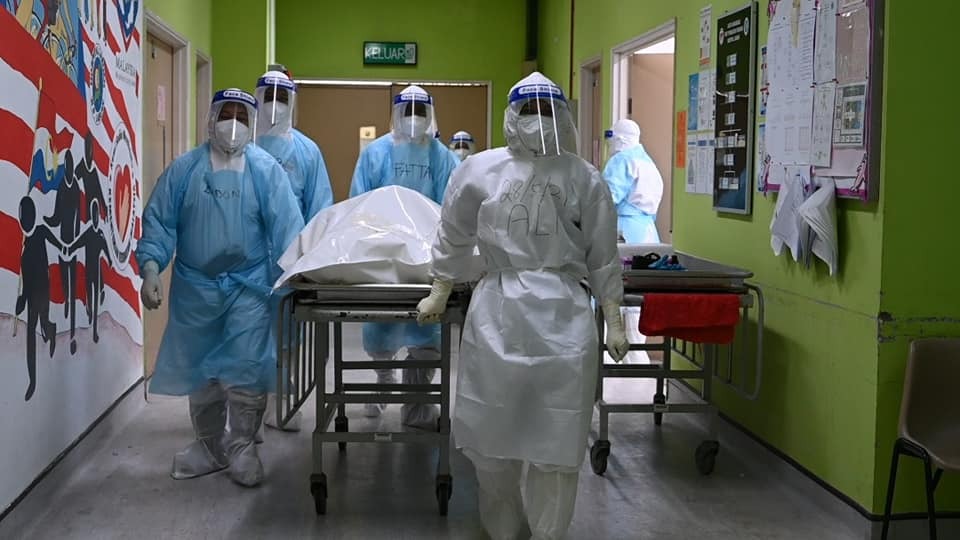KUALA LUMPUR, Sept 29 — Health officials attributed the country’s high brought-in-dead (BID) Covid-19 cases to delays in close contact tracing, late appointments by Covid-19 Assessment Centres (CACs), and patients’ inability to obtain immediate ambulance services.
Health Minister Khairy Jamaluddin said 95 per cent of BIDs were found to be positive for Covid-19 after tests were conducted on the bodies upon arrival at hospitals. Only 5 per cent had tested and were diagnosed with Covid-19 before their demise at home.
Official records between May 1 and August 22 showed that about 69.1 per cent or 150 cases out of 217 BIDs were discussed at the subcommittee level that monitors Covid-19 deaths, Khairy told Jempol MP Mohd Salim Sharif in a written Dewan Rakyat reply yesterday.
The bulk of the 150 BIDs involved individuals who have not been assessed by the CAC at 110 cases (73 per cent). The district health office (PKD) was not informed of 63 cases (57 per cent) out of the 150 BIDs, compared to 47 cases (43 per cent) it was notified of, while 40 BIDs (27 per cent) occurred among patients who were under CAC monitoring.
More than half of cases undetected by the PKD involved close contacts who withheld from or delayed getting tested or treated for Covid-19, symptomatic patients who went to private clinics without testing for Covid-19, and inability to acquire ambulance services.
Meanwhile, BIDs among identified patients were attributed to late CAC appointments, delays at the PKD level in verifying the cases due to limited human resources, inability to contact patients due to incomplete or incorrect contact information, longer waiting time for hospital beds, and patients’ unwillingness to be referred to hospitals.
Khairy further noted that some Covid-19 patients under home surveillance have also been found to deteriorate rapidly within a short time frame.
He said several measures have since been identified to improve CAC’s home surveillance, including referring high-risk patients such as the elderly, those with comorbidities and low immunity to hospitals or low-risk quarantine and treatment centres (PKRCs).
Other steps include improving communications among health workers and patients, as well as ensuring that patients actively update their health status using the Health Assessment Tool (HAT) until the end of their respective quarantine period.
The Ministry of Health has set up several virtual CACs across the country, including in Selangor, Kuala Lumpur, Putrajaya, and Seremban in Negeri Sembilan. Patients under home quarantine are also given pulse oximeters throughout their isolation period.
CodeBlue reported last September 21 that BIDs formed about 20 per cent of weekly coronavirus fatalities since August 1. In the fortnight of September 5 to 18, the majority of Malaysia’s 517 BID cases were reported in Sabah (26 per cent), Penang (18 per cent), and Johor (17 per cent).








